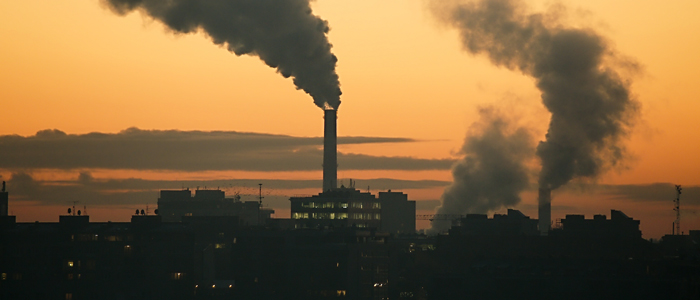IPCC report calls for a rapid ‘just transition’
A just transition, prioritising equity, climate justice and social inclusion, is essential to enable ambitious mitigation actions and adaptation to address the worsening climate crisis, according to the recently released IPCC report.

Atmospheric CO2 concentrations were higher in 2019 than at any time in at least 2 million years. The largest share and growth in gross greenhouse gas emissions occurring in CO2 from fossil fuels combustion and industrial processes. The adverse impacts of climate change have been widespread. The impact is unequally distributed across regions and within countries and negatively affects gender and social equity. Rapid and far-reaching transitions and systemic change is required.
Limits to adaptation are emerging in highly vulnerable populations, approximately 3.3-3.6 billion people, such as in low-income countries, and globally for Indigenous Peoples, small-scale food producers and low-income households. Vulnerability is exacerbated by inequity and marginalisation related to gender, ethnicity, low incomes, disability, age, and historical and ongoing patterns of colonialism, especially for many Indigenous Peoples. Meanwhile individuals with high socio-economic status contribute disproportionately to emissions.
Redistributive policies and the equitable sharing of benefits (and disadvantages) of mitigation measures, between and within countries, are necessary to protect the vulnerable. The IPCC report calls for social protection programs, provision of essential and basic services, access to finance for the poor and marginalised communities. The participation of the poor and vulnerable groups in the decision making in their just transition can ensure this.
The report emphasises the importance of access to finance and accelerated financial support from developed countries to developing countries for far-reaching adaptation and mitigation actions. Given the size of the global financial system there is enough capital and liquidity to do this.
Bottom line, we need to stop burning fossil fuels. Projected CO2 emissions from existing fossil fuel infrastructure without additional abatement would exceed the remaining carbon budget for 1.5°C. An immediate, fast-tracked and just energy transition away from fossil fuels to clean energy is key to accelerated mitigation. The United Nation’s Antonio Guterres called on wealthy countries, such as Australia, to urgently stop approving new coal, gas and oil projects and for OECD countries to phase out coal by 2030, shifting subsidies from fossil fuels to a just energy transition (United Nations, 2023).
Australia has the resources to achieve net zero according to the preliminary results of a study by the Melbourne Energy Institute. We know decarbonisation needs much higher investment, but the costs of inaction are substantial.
Social equity is indispensable to the transition towards zero-carbon and sustainable societies, but are the recommendations in the report far-reaching enough? The report doesn’t call for debt cancellation, a demand raised by the climate justice movement in the Global South, as a necessary redistributive measure to enable governments facing debt distress to address climate impacts.
As Greta Thunberg points out, despite more than 30 years of warnings from the IPCC, world leaders remain incapable of addressing climate breakdown. The message is clear: we have the means, and we need to act with the utmost urgency.
Dr Reihana Mohideen is a Principal Advisor at the Nossal Institute for Global Health. Reihana's research focuses on Social Implications of Technology: Energy, Infrastructure and Health; Just Transition; Gender Equality and Social Inclusion